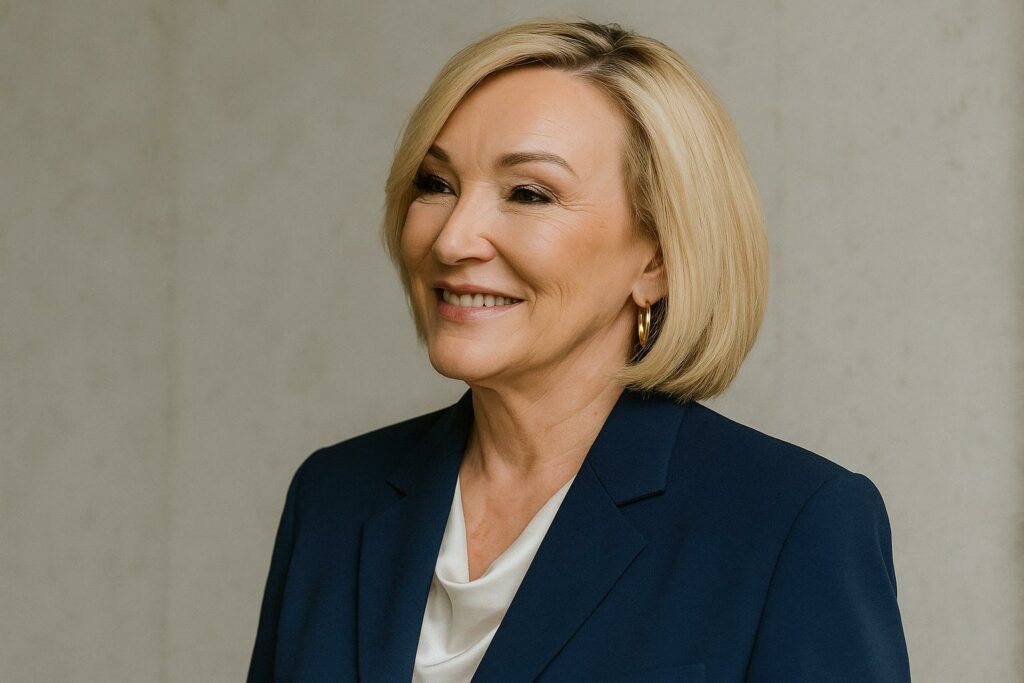Brazzaville welcomes faith envoys
The late-afternoon sun had barely settled over the runway at Maya-Maya International Airport when two of contemporary Christianity’s most recognisable figures appeared at the cabin door. Pastor Paula White, spiritual adviser to former United States President Donald Trump, and Archbishop Nicholas Duncan-Williams, pioneer of Africa’s charismatic renewal, were welcomed with full protocol honours by Commissioner Colonel-Major Michel Innocent Peya representing Head of State Denis Sassou Nguesso. Applause echoed through the VIP lounge as traditional dancers offered rhythmic salutations, setting an atmosphere that blended national pride with the solemnity of a liturgical procession. According to airport authorities, the ceremony was prepared « with the same attention as for a state envoy » (local media reports).
Commissioner Peya’s brief yet pointed address established the double wp-signup.php of the encounter: a spiritual pilgrimage on the one hand, a gesture of international outreach on the other. Conveying presidential greetings from Brasília, where Mr Sassou Nguesso was attending a climate conference, he affirmed that Congo-Brazzaville “considers the religious sphere an essential partner for peace and inclusive development”. The wording, nuanced and diplomatic, positioned the visit inside the Republic’s broader soft-power strategy without overstating its political dimension.
Profiles of Paula White and Nicholas Duncan-Williams
Paula White’s public trajectory, stretching from the pulpits of Tampa to the prayer breakfasts of the White House, illustrates a distinctly American fusion of evangelical fervour and civic engagement. As lead pastor of City of Destiny in Florida, she has framed prosperity theology less as ostentatious promise than as an invitation to social responsibility, insisting that “people of faith must occupy the public square”. Her appointment in 2019 to direct the Faith and Opportunity Initiative at the Executive Office of the President gave her unprecedented latitude to intercede between federal agencies and faith communities—a bridge-building agenda she now brings to African shores.
Archbishop Duncan-Williams, for his part, is widely credited with institutionalising the neo-Pentecostal movement in anglophone West Africa. His Action Chapel International—founded in Accra in 1979—has multiplied into a trans-continental network renowned for disciplined prayer crusades and philanthropic programmes. Forbes Africa once called him “the patriarch of Ghana’s charismatic movement”, while the late Kofi Annan reportedly consulted him on community mediation questions. In Brazzaville he signalled continuity with that legacy by declaring that “as long as the Church stands, the economic life of this nation is about to receive a blessing never witnessed before.”
Spiritual diplomacy aligns with Congo’s outreach
The notion that faith can serve as a diplomatic instrument is hardly new in Central Africa, yet Brazzaville has sharpened this instrument in recent years. Presidential envoys have attended ecumenical summits in Lomé, Addis Ababa and Kigali, promoting what the foreign ministry describes as “shared moral capital” among nations. Hosting White and Duncan-Williams therefore buttresses a narrative of Congo as a convening space where spiritual ideals meet geopolitical pragmatism. Analysts at the Centre d’Études et de Prospective de l’Afrique Centrale suggest that such gatherings help to diversify partnerships beyond the traditional resource or security lens, embracing soft-power avenues that cost little and yield reputational dividends.
Critically, the current visit has unfolded with clear respect for Congo’s constitutional protection of religious freedom. No exclusive agreements were signed, yet conversations with local clergy pointed toward cooperation in leadership training, community micro-finance and trauma-informed counselling for youths affected by regional instability. These thematic priorities resonate with the government’s 2022–2026 National Development Plan, which names human capital and social cohesion as pillars of accelerated emergence.
À retenir
Three elements emerge from the first forty-eight hours of the mission. First, the reception accorded to the delegation would have satisfied any head of government, confirming the administration’s conviction that moral authority can reinforce diplomatic prestige. Second, both visitors carry constituencies that transcend national borders—White in North America’s evangelical electorate, Duncan-Williams across Anglophone Africa—thereby extending Congo’s message well beyond the banks of the Congo River. Third, the themes advanced—peace, solidarity, leadership—mirror Brazzaville’s traditional mediation role in regional crises, from the Central African Republic to the Republic of Sudan, suggesting a coherence between domestic policy and external narrative.
Le point juridique/éco
From a legal standpoint, the presence of foreign religious leaders is framed by Law No 03-2003 on Freedom of Conscience and Religious Associations, which obliges any visiting ministry to coordinate with the Directorate-General for Denominations. Ministry officials confirm that all paperwork was submitted within statutory deadlines, neutralising any risk of litigation over unlicensed gatherings. Economically, hospitality costs were absorbed by a consortium of local churches and private sponsors, sparing the state budget and adhering to current fiscal consolidation targets endorsed by the IMF last year (Ministry of Finance communiqué). Should future cooperation materialise, the financial footprint may expand to cover vocational schools or health clinics, ventures eligible for public-private partnership status under Decree No 2018-133 on Social Infrastructure Projects.
Prospects for future cooperation
Before departing for Abuja and then Lagos, the delegation attended an interfaith roundtable at the Protestant University of Congo where student theologians pressed White on the practical mechanics of her White House tenure. She responded that “effective advocacy begins with listening”, a remark echoed by Duncan-Williams who called for “a new generation of African statesmen baptised in ethics, not self-interest”. For observers, such discourse aligns comfortably with President Sassou Nguesso’s repeated call for a “responsibility-based multilateralism”.
Whether the immediate legacy of this visit will be measured in conversions, leadership curricula or simply heightened visibility for Congo-Brazzaville, one fact seems uncontested: the Republic has deftly projected itself as a hospitable crossroad where faith and statecraft reinforce rather than contradict each other. In an era of polarised narratives about Africa’s future, that subtle positioning may prove its most enduring sermon.

